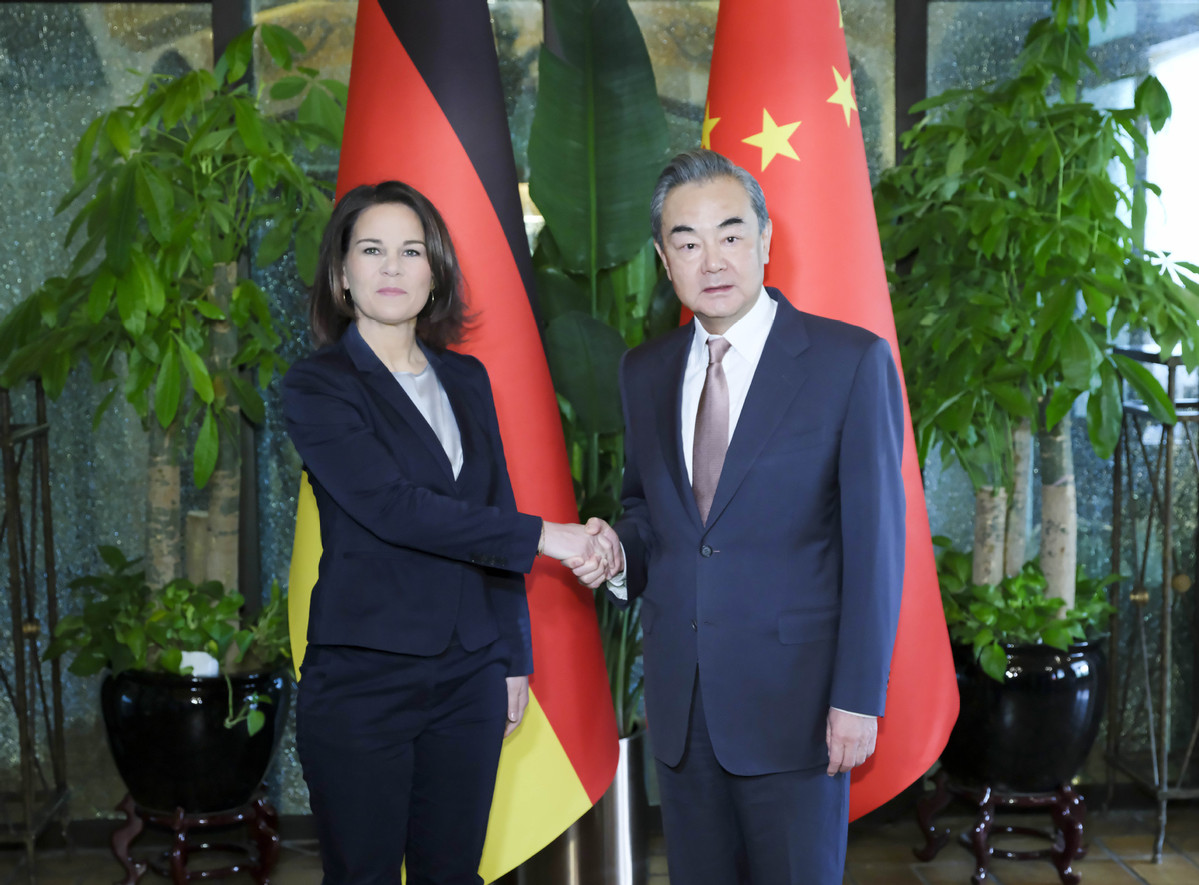
Wang Yi, director of the Office of the Foreign Affairs Commission of the Communist Party of China (CPC) Central Committee, meets with German Foreign Minister Annalena Baerbock in Beijing on Saturday, April 15, 2023. [Photo/Xinhua]
This is an editorial from China Daily.
After French President Emmanuel Macron's call for European "strategic autonomy" during his visit to China, there was increased attention on German Foreign Minister Annalena Baerbock who visited hard on his heels.
Known for her hawkish position on China, it had been expected that the German foreign minister would seek to present the unity and strength of the transatlantic alliance during her just-concluded inaugural China trip.
That she did. And she conveyed the message loud and clear: That a change in Taiwan's status would be "unacceptable", that a "military escalation" in the Taiwan Strait "would be a horror scenario for the whole world" and have "repercussions" for Europe. She will have been reminded during her visit that it is the secessionists on the island and the support they receive from some external forces that is the root cause of both the changes in the cross-Strait status quo and the escalation of tensions. In many cases, it is exactly these external forces who are unwarrantedly hyping up concerns over the "horror scenarios" on the Taiwan question.
She was to a great extent reiterating what has been anticipated in the new German strategy on China her ministry has been preparing. Although the original draft of the document has reportedly had to be revised as it was considered to take too tough a stance and to overemphasize the importance of values, aligning Germany closely with the United States.
Despite all the obvious ambition to reduce Germany's alleged "dependence" on China, which has been a key component of Baerbock's policy portfolio, the top German diplomat cannot ignore the importance of China as a long-standing economic partner.
Thus, along with the toughness she displayed on such topics as Taiwan, Baerbock expressed Germany's continued interest in cooperating with China. Her government remains dedicated to the one-China policy, and would not pursue economic "de-coupling" from China, she told her Chinese hosts.
As a recent document issued by more than 90 conservative members of the German parliament warned, she will be aware that it would be self-defeating if Germany's new China policy becomes an "anti-China strategy", because it would be an "economic disaster" for Germany to sever all economic ties with China. At the same time, China is an indispensable partner in addressing such global challenges as climate change, nuclear proliferation and geopolitical crises.
Had the Germans and other Westerners a more objective view of Chinese sensitivities surrounding national reunification, they would see the Taiwan question differently.
In his meeting with Baerbock, Wang Yi, director of the Office of the Foreign Affairs Commission of the Communist Party of China Central Committee, said Taiwan's "return to China" is an important part of the post-World War II international order. Reminding his guest that China once supported the reunification of Germany, Wang expressed the "hope and belief" her country would support the "peaceful reunification" of China.
Hopefully, Baerbock will have returned home with a more open mind on the potential for European strategic autonomy.

 中文
中文



